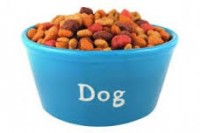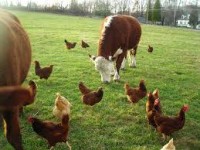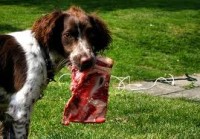Food for thought
Alleged conflict of interest and the regrettable perception of insult aside, there are more important issues arising from the recent 7.30 report on veterinarians and the petfood industry that directly relate to our profession.
What do we, as veterinarians, really know and advise about pet nutrition?
It is possible that the message from this incident is that we need to take charge of the information that underpins all health and not outsource this imperative to food manufacturers with vested interests especially, as has been demonstrated by this news report, since we get caught up in the fallout and suffer anguish.
When did we begin to implicitly trust pet food manufacturers to know more about pet nutrition than we do?
The public ought to be able to rely on us to have accurate information on matters related to pet nutrition and we can actually have greater profit margins by selling services rather than products with the bonus of better value for money to clients. A range of pet foods being offered for sale is not the real issue from the public’s perspective, it is usually the fact that we are selling products at all. This does not mean we should not sell petfoods, it just reminds us that people and the pets, may in fact, require more from us than that.
If we are selling these commercial foods because we know them to be safer, better and more convenient then that is what people need to hear from us and they also need to know why we think this to be true.
Owners may need to feel that they are doing more for their pets’ health and wellbeing by creating meals for the animal by themselves without our criticism. Some of my clients know more about canine nutrition than I still do after years of further study.
Most of my practice involves helping pet owners develop and feed the best possible diets for their pets with or without the use of commercially prepared foods.
This is a collection of observations, statements and questions for which evidence and answers can be found if we know where to look.
They are questions and comments that do arise and may arise much more frequently in small animal practice in this world of ‘information’ overload.
Each phrase is a starting point for conversations we need to be having with each other about how to best feed our pets.
As veterinarians we most definitely stand to profit by finding the best solution to the number ONE essential foundation element of animal health; NUTRITION.
- all veterinarians care about animals and their welfare
- all veterinarians are dedicated and intelligent health professionals
- who coined the phrase “prescription diets” and what does it mean?
- Hippocrates said “Let food be thy medicine”
- Prevention is better(and more fun) than cure
- There is evidence that fresh, real, species appropriate food can treat and prevent many diseases.
- Dogs and cats have teeth for cutting and tearing their food
- What are vets actually taught about dog and cat nutrition and by whom?
- Would anyone choose to eat dry, heat extruded, unidentifiable food pellets for every meal of their lives over fresh whole species appropriate foods if they had a choice?
- The microbiome relies on real (fresh organic and raw) foods to keep functioning optimally
- Optimum and vibrant health relies on a healthy gut microbiome
- There is a gut-brain axis
- Nutrigenomics is an exciting and important field of discovery that warrants our immediate attention and investigation
- The mainstay of all health practice in all species hinges on optimum nutrition
- What are real foods as distinct from convenience foods or ‘dead’ foods?
- Why have commercial pet foods changed formulae over recent years to include such things as green lipped mussel, vegetables and omega 3 amongst other nutrients?(albeit in suboptimal, inappropriate and misleading quantities)
- Dogs and cats do not actually have a requirement for carbohydrates in their diets
- Dogs and cats optimally use raw fat for energy
- Chewing grass is normal and essential for dogs and cats if they are not getting fresh raw greens in their diets
- Heated or cooked fats become toxic
- Commercial petfoods are ultraheated and irradiated during manufacture or import
- Why is pancreatitis so commonly diagnosed in dogs?
- Cooked fat potentiates and probably causes pancreatitis
- Grains are proinflammatory foods, how do they behave in dogs and cats?
- Dogs will survive (but not thrive) being fed most things
- Chewing large and inappropriate (cooked or weight bearing) bones can break teeth
- Chewing appropriate raw meaty bones is probably the last remnant of ‘normal’ behaviour acceptable to carnivores in a modern world
- Crunching raw meaty bones releases endorphins and ‘feel good brain chemicals’ in dogs and cats that contribute to vibrant health
- Why are humans the only species that cook foods?
- Most cases of documented food poisoning have come from commercial dog foods and poor storage and not from feeding raw diets to pets.
- Commercial pet foods are very convenient
- The effort required to field owners queries about diet and to have a wider base of knowledge of nutrition can be hugely profitable to veterinarians
- Opinions and facts are different things that may occasionally coincide
Having observed that many of my holistically minded and educated veterinary colleagues have been long sufferers of tireless slander from sceptics and industry experts, I simply appeal to readers to make up their own minds about something as basic as what we feed our pets, especially when the results of simple common sense practices clearly speak for themselves.
10797
Do not think
Your opinion
Is the only opinion.
Sri Chinmoy, Seventy-Seven Thousand Service-Trees, Part 11, Agni Press, 1999
17425
Do not remain glued
To your own opinion.
Others may have opinions
That can easily challenge
And defeat yours.
Sri Chinmoy, Twenty-Seven Thousand Aspiration-Plants, Part 175, Agni Press, 1992



December 1st, 2015 at 7:16 am
Yay, well said Saranyu!
I have recently put up on my website, in the article “Natural Diet for Dogs and Cats”, a detailed recipe for dogs and also one for cats for anyone to use to feed their pets in a balanced and healthy way, cheers!
Clare Middle